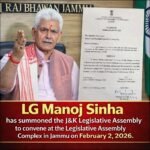Madagascar, a nation known for its unique biodiversity and rich cultural heritage, finds itself at a crossroads as President Andry Rajoelina takes the oath for a new term amidst opposition boycotts and international concerns. The absence of former presidents at the inauguration ceremony underscores the deep-seated tensions within the nation.
The political landscape in Madagascar is marked by a series of challenges, including a boycott by opposition forces and the prohibition of demonstrations in the capital. These events have raised concerns both domestically and internationally, with Western nations calling for legal and electoral reforms to ensure a fair and transparent political process.
Amidst the political unrest, the island nation grapples with a dire economic situation. President Rajoelina, aware of the pressing issues facing his country, has vowed to boost livelihoods in one of the world’s poorest nations. The commitment comes as a response to the economic crisis that has gripped Madagascar, affecting the lives of its citizens.
One of the critical factors contributing to the economic turmoil is Madagascar’s heavy reliance on the vanilla industry. As the world’s largest producer of vanilla, the country has historically depended on this crop as a significant source of revenue. However, recent challenges, such as a fall in vanilla prices amid sluggish global demand, have dealt a severe blow to the industry.
The declining vanilla prices have sent shockwaves through the economy, exacerbating existing hardships. The situation is further complicated by the ongoing global economic uncertainties, impacting the purchasing power of nations that traditionally import vanilla from Madagascar.
More About The Economic Challenges:
In response to these economic challenges, President Rajoelina faces the daunting task of implementing measures to stabilize and diversify the economy. The need for comprehensive economic reforms is evident, and the international community is closely watching to see how Madagascar will navigate these turbulent waters.
While Western nations call for legal and electoral reforms to address the political tensions, they also emphasize the importance of implementing measures that will strengthen the economic foundation of the island nation. It is a delicate balancing act for President Rajoelina, who must navigate both political and economic uncertainties to steer Madagascar towards a more stable and prosperous future.
As Madagascar stands at this critical juncture, the challenges ahead are formidable. The resilience of its political institutions and the effectiveness of economic reforms will play a pivotal role in determining the trajectory of the nation. The world watches with a keen interest as President Andry Rajoelina embarks on a new term, hoping that his leadership will guide Madagascar through these challenging times.










